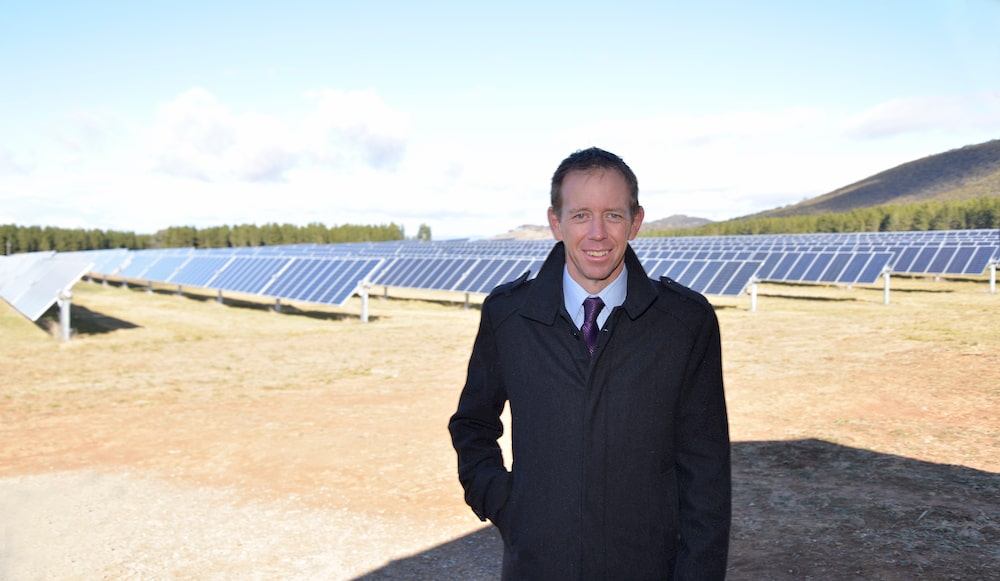The ACT is becoming solar-powered – and more Canberra residents are making hay while the sun shines, proving that blue sky thinking can be the bright thing to do.
Last year’s hellish bushfires spurred Tenille Fricker and her partner into installing rooftop solar panels and a battery, thanks to an ACT Government rebate. They were determined to act on global heating, with reduced energy bills as a bonus.
“I’ve been concerned about climate change for a really long time, but living through the smoke in the ACT over the last summer really galvanized for us the need to take immediate action, and to try to reduce our own emissions,” Ms Fricker said.
Solar systems can be installed for Canberra households in the region of $5000 and save at least $500 to $1000 on energy bills a year, allowing owners to pay them back within three to five years. Ms Fricker said she had already seen cost savings: the final quarter bill was only $233, while the first full quarter bill brought $75 in credit.
At the same time, Ms Fricker replaced her hail-written-off car with a second-hand electric vehicle, which can be charged from her rooftop solar during the day.
Ms Fricker is one of thousands of Canberrans who have installed solar panels, helping make the ACT the first jurisdiction outside Europe with a population of more than 100,000 to achieve 100% renewable energy.
According to the ACT Government’s 2019–20 annual Feed-In Tariff report, there are more than 28,000 solar generators in the Territory – an increase of more than 17% during the last financial year.
Solar generators on Canberra’s rooftops produced more than 135 megawatts – more than six times the amount the large-scale Royalla solar farm produces, the government said.
These solar generators spawned more than 119,000 megawatt hours (MWh) of clean energy in 2019–20, an increase of almost 19% over 2018–19.
More than 47,000 MWh came through the more than 10,000 solar photovoltaic systems provided under the ACT Government’s Feed-in Tariff (FiT) scheme, a former incentive to boost solar uptake and bring solar system prices down.
Although this scheme closed in 2011, successful applicants receive FiT payments for 20 years from the date their system was connected to the electricity network; their electricity provider pays them for the total kilowatt hours their system generates.
The estimated cost of this scheme fell to $6.07 / MWH, or around 83c per week, for a two-person house consuming 7.151MWh annually, according to the report.
“This is an extraordinary performance,” Shane Rattenbury, Minister for Water, Energy, and Emissions Reduction, said. “Canberrans really understand the benefits of solar both for generating clean green electricity, and also to help them reduce their energy costs.”
This year, the ACT Government will rollout the Sustainable Household Loan Scheme, under which Canberrans can borrow between $2000 and $15,000 to install cheaper forms of energy such as rooftop solar. These interest-free loans will help people with little capital to invest in solar, Mr Rattenbury said.
ACTSmart also provides free advice on installing solar power.
For more news:



